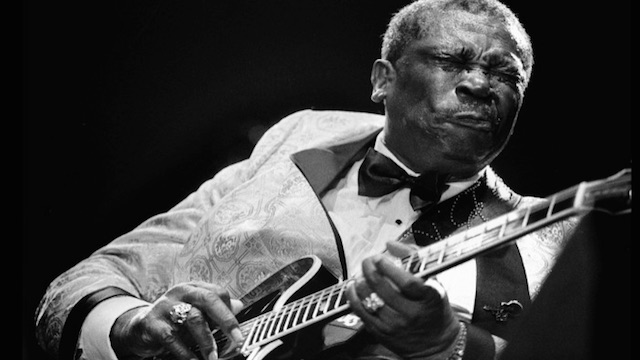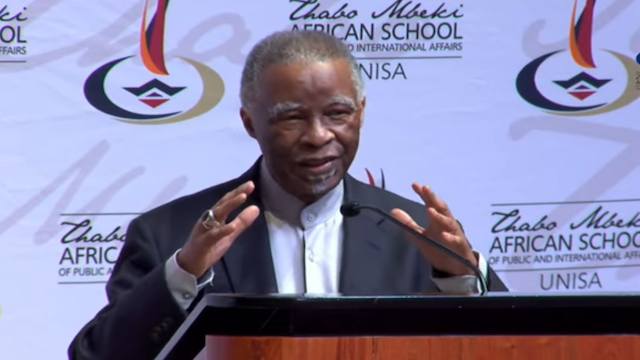The legendary guitarist and Blues singer Riley B. King, known as B.B. King, has died in Las Vegas on Thursday May 14, 2015 at age 89. Known for his soulful velvety voice and his unique style of blues, he is credited for making Blues one of the mainstream music genres around the World.
The King of the blues, as he was affectueusly known, was born in Mississippi from where he got the inspiration of what he called "Delta blues roots". His music has influenced a lot of music stars and music genres, including rock, R&B, pop, and of course blues. Rock, R&B, pop, and blues
musicians such as Eric Clapton, John Mayer, Sheryl Crow, U2, Buddy Guy, Mick Jagger, Jeff Beck and others claim B.B. King has influenced their music.
B.B. King was a legend.
The life of BB king was depicted in "B.B. King: The Life of Riley" documentary. The B.B. King Museum and Delta Interpretive Center was opened in Mississippi in 2008.
He got 30 Grammy nominations and and won 15 times, including two grammies in 2000: one along with Eric Clapton for Best Traditional Blues Album for "Riding with the King" and another with Dr. John for Best Pop Collaboration with Vocals for "Is You Is, or Is You Ain't (My Baby)."
He has received numerous honors including, a Grammy Lifetime Achievement Award, Rock and Roll Hall of Fame induction, and a Presidential Medal of Freedom. His last grammy was in February 2009 for Best Traditional Blues Album for "One Kind Favor" (2008).
Beloved Lucille
B.B.King is perhaps best known for his beloved guitar Lucille. In the mid-1950s, King, while was performingin in Twist, Arkansas, and because it was cold, fans started a fire with kerosene fuel. A few fans became unruly and hit gas heaters which set the building on fire. King ran out, forgetting his guitar, and risked his life to go back and get it.
He later found out that two men fighting over a woman named Lucille knocked over the kerosene heater that started the fire. He named the guitar Lucille, "to remind myself never to do anything that foolish."
Over his career, B.B. King used various models of Gibson guitars, which he all named Lucille. In the 1980s, Gibson officially dropped the model number ES-355 on the guitar King used, and it became a custom-made signature model named Lucille, manufactured exclusively for the "King of the Blues."
Beale Street Blues Boy
B.B. in King's name came from Beale Street Blues Boy. King took the Beale Street Blues Boy name as a disc jockey for radio station WDIA-AM Memphis. Born on September 16, 1925, on a cotton plantation between Indianola and what is now Itta Bena, Mississippi, he sang with church choirs as a child and learned basic guitar chords from his uncle, a preacher. As a young boy, he played on street corners for dimes, claiming that he earned more in one night singing on the corner than he did in one week working in the cotton field.
He enlisted in the Army during World War II but was released because he drove a tractor, an essential homefront occupation.
In 1947, he hitchhiked to Memphis, Tennessee, to try a music career. He stayed with and learned blues from his cousin Bukka White, one of the most celebrated blues performers of his time.
He got his first big break in 1948 by performing on Sonny Boy Williamson's radio program out of West Memphis, and later at the Sixteenth Avenue Grill in West Memphis and a 10-minute spot on WDIA.
As "King's Spot" grew in popularity on WDIA, King shortened "Beale Street Blues Boy" to "Blues Boy King" and eventually B.B. King.
His ascent continued in 1949 with his first recordings, "Miss Martha King/Take a Swing with Me" and "How Do You Feel When Your Baby Packs Up and Goes/I've Got the Blues." His first hit record "Three O'Clock Blues" was released in 1951 and stayed on the top of the charts for four months.
In 1970, he won his first Grammy for "The Thrill is Gone." That same year, he debuted an all-blues show at Carnegie Hall and appeared on "The Ed Sullivan Show."
He did not slow down until the diabetes, that led to his death, aggravated.

















